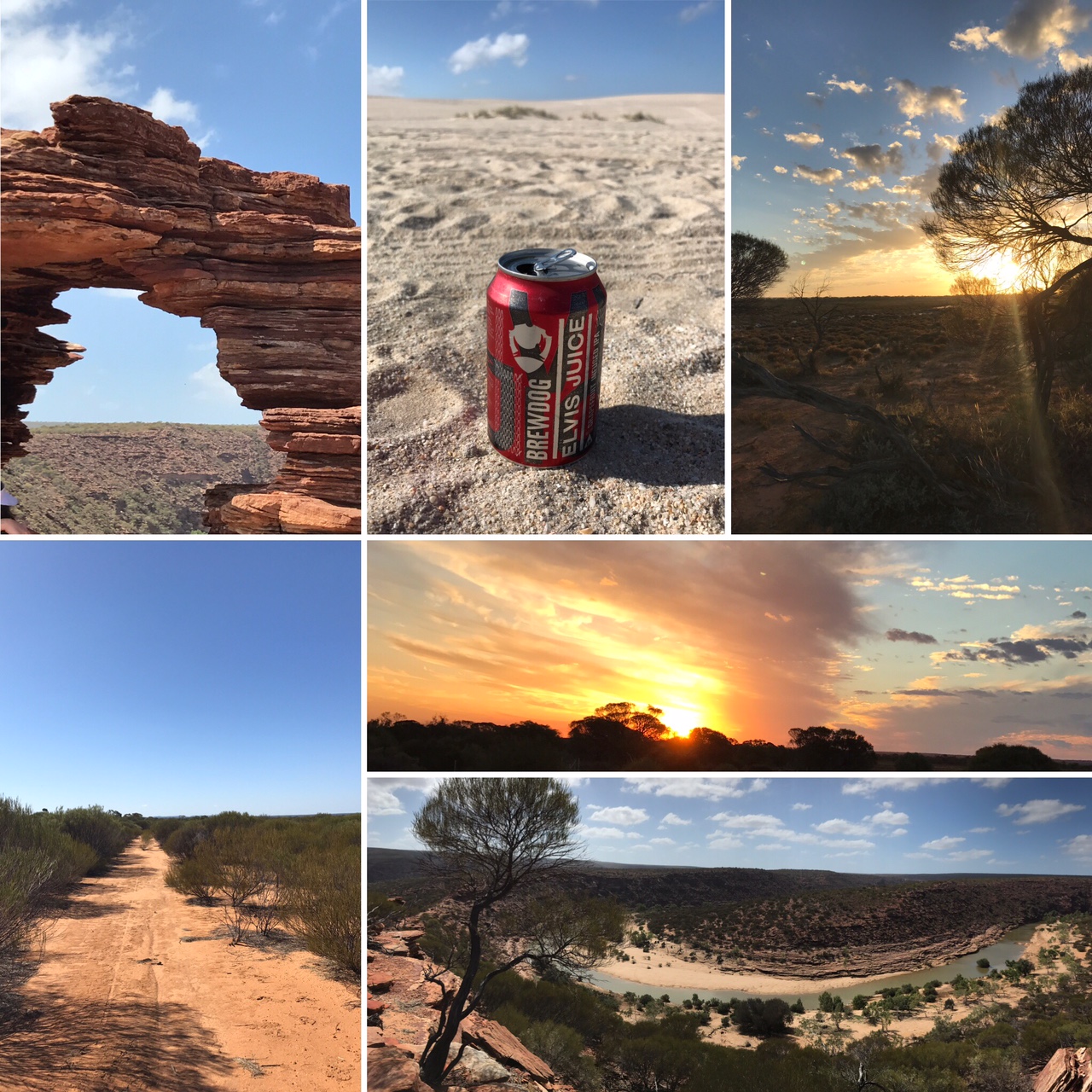Leaving 4G behind; bush camping over Easter

I enjoy my job; being online, posting and following companies and bloggers on social media and being ‘connected’ to the world. And I love developing my palate by tasting a range of beers and wines. But I also love getting outdoors; getting away from it all and spending time with nature; more so if it’s not pouring with rain; getting wet and staying wet is far from enjoyable!
So over Easter I headed up to Lucky Bay, about 40 kilometres south of Kalbarri. Fantastic location in the sand dunes, by the ocean and with loads of space between all the different tents/trailers. When packing for camping, especially in the bush where you ‘leave nothing but footprints’ then you really need to think about not just your food, water and clothes but also how much rubbish you will create. Think beer cans instead of beer bottles for example. A cool beer as the sun goes down on a hot day is even cooler in cans. I took quite a few Brew Dog Elvis Juice away and then we stocked up on Emu Export. After a day of camping, beer really is thirst quenching! And I’m learning that not only do cans keep beers cooler but other advantages include:
-they avoid any sun exposure (never good for beer)
-offer good storage
-are lighter than glass
-can be crushed post consumption
-can be recycled
After 4 nights at Lucky Bay we drove, what ended up being most of the day (that’s what happens when travelling with small child…breaks are more often) to Charles Darwin Reserve, 355km NE of Perth, 60km E of Perenjori. It is named after the naturalist, Charles Darwin and it is a nature reserve and ‘Australia’s only internationally recognised biodiversity ‘hotspot’ – plant species diversity in the Southwest Botanical Province is higher than in tropical Australian rainforests.’ The 68,300 hectares was bought in 2003 by Bush Heritage Australia and protects animals, plants, vegetation and it was the donation from Charles Darwin’s descendant, Chris Darwin that was paramount in buying this land. It’s incredible that on the reserve there are 230 animals including mammals, reptiles, birds and amphibians, 680 plant species (and counting). I was interested to read that the reserve is part of the Climate Change Observatory project and helping us to understand what the changing climate will have on Australian animals and plants.
The reserve relies heavily on donations and volunteers. Click here for more.
In any case, while bush camping, once we had unpacked the tents, gazebo and kitchen equipment, we could all relax and enjoy the benefits of bush camping which are:
-view the sunset, night sky and sun rise as it really is, with no pollution
-enjoy quality family time
-playing cards and toasting marshmallows
-exploring the bush
-getting closer to nature
-making you have time out
-no internet
-cheap, $15 per person per night at Lucky Bay or a donation at Charles Darwin Reserve
-not crowded; I don’t have to hear someone snore in the tent 5 metres away, only my own family and friends in our area
Bush camping might not be for everyone. I agree that it can be tiresome washing and drying and unpacking and remembering where you put your clothes/food/cutlery but in a sense…, you’re free. You get up, go for a walk, no commuting, no checking your phone but exploring and relaxing and no time constraints…except making sure you eat at your set times, more important for child than you but ‘happy child, happy family’.
